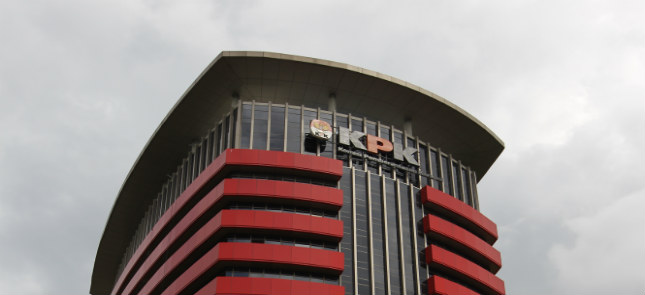Jakarta, 15 May 2020. The Corruption Eradication Commission has requested the government to review its decision to increase the premiums of BPJS Kesehatan. In the Study of Health Social Security Funds (DJS) Management conducted by KPK in 2019, the main problem found was the inefficient and inappropriate management which has caused the deficit in BPJS Kesehatan.
“Increasing BPJS Kesehatan premiums as a solution without having the improvement we recommended will not solve the fundamental problems in the management of health social security funds," said KPK Commissioner Nurul Ghufron.
In fact, this increase will only halt the achievement of the objectives of social security mentioned in Law No. 40 of 2004 that social security is a form of social protection to ensure that all the citizens can fulfil all the basic needs of their lives. Therefore, the participation and protection of all Indonesian citizens are the main indicators of a successful social health protection.
“Increasing the premiums during the time when people’s economic capacity is declining will certainly reduce people’s rate of participation in BPJS,” said Ghufron.
The roots of the problem behind the deficit in BPJS are inefficiency and fraud; consequently, increasing the premiums without any improvement in BPJS management system will not solve the problem. On the other hand, KPK even suggests that the premiums do not need to be raised if the recommendations put forward by KPK are followed.
“It will only give more burden to the people, considering the hardship faced by people at the moment and its potential future impact”, said Ghufron.
KPK believes that it is necessary to convey several things, as reminders, regarding the recommendation given by KPK related to the BPJS problem.
Firstly, KPK fully supports the achievement of government projects in organizing universal health coverage. However, this needs to be done by also ensuring that the people have the access to the health services supported by proper medical facilities without having any financial difficulties.
Next, the alternative solutions recommended by KPK are series of policies which are under the authority of the Ministry of Health, and KPK believes that if these recommendations are followed, they can help reduce the financial burden borne by BPJS Kesehatan to avoid any deficit.
The alternative solutions are for the government, in this case the Ministry of Health, to complete the National Medical Practice Guidelines (PNPK), to conduct the hospital class control, and to implement a co-payment policy for independent members as regulated in the Minister of Health Regulation No. 51 of 2018 regarding Co-Payment and Cost Difference in Health Insurance Program.
The government should also apply the policy of limiting benefits for the claims of catastrophic diseases as part of the prevention efforts, and also accelerate the implementation of the policy regarding the coordination of benefit (COB) with private health insurance companies.
To solve the problem of the independent members’ contribution arrears, KPK recommends that the government integrates the obligation to pay the BPJS premiums with other public services.
KPK believes that this recommendation is the solution to solve the inefficiency problem and to prevent frauds happened earlier based on the study. Therefore, KPK hopes that the government ensures that its programs to give benefits in providing basic health services can be accessed by all Indonesian citizens instead of raising the premiums of BPJS Kesehatan which will lead to the decrease in public participation in the program.
KPK also believes that if its recommendations are followed to solve the fundamental problems in the management of health social security fund, the problem of deficit in BPJS Kesehatan will also be solved.
Public Relations Bureau
Corruption Eradication Commission
Jl. Kuningan Persada Kav.4
South Jakarta
(021) 2557-8300 Call Center 198
